Sultan Abdul Samad Building
Bâtiment du sultan Abdul Samad
© unknown
MYS
à proximité de Kuala Lumpur
Télécharge images...
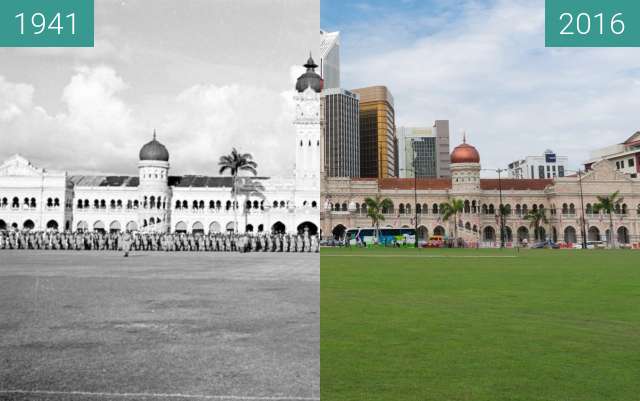
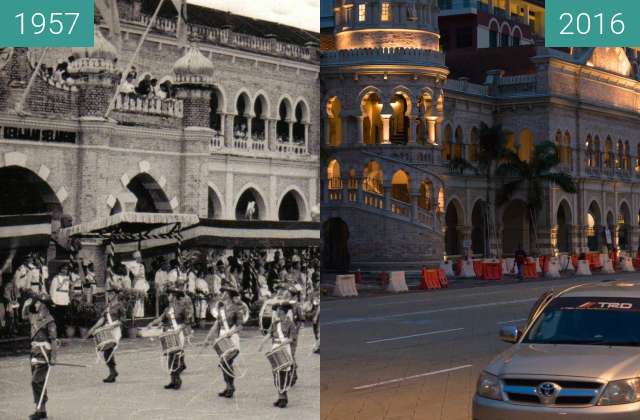
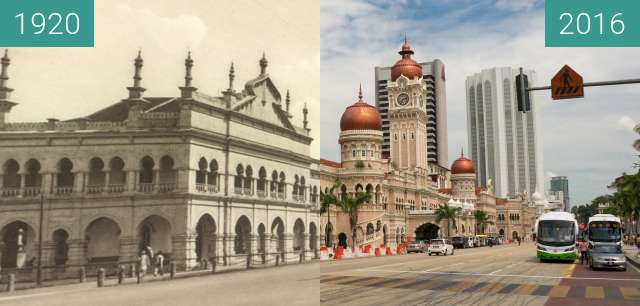
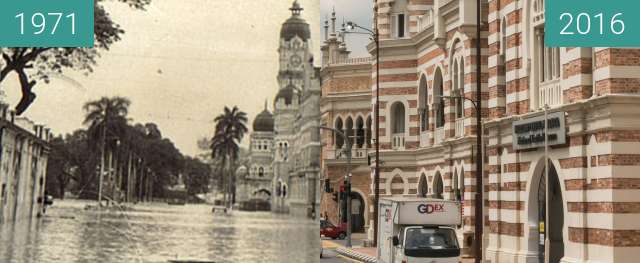
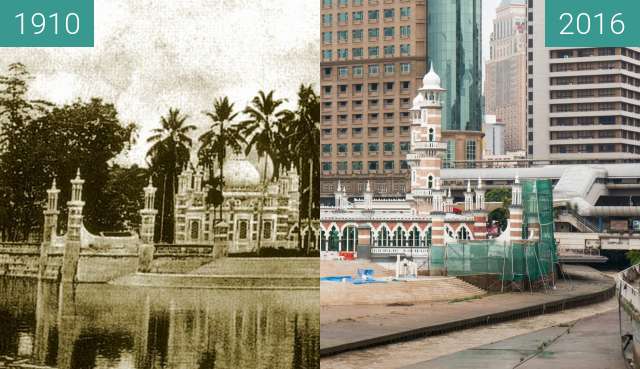
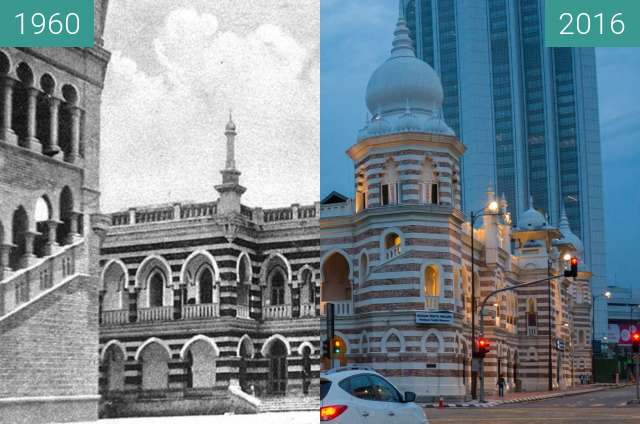
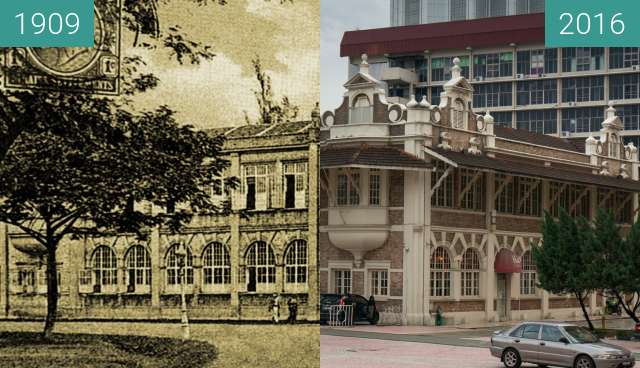
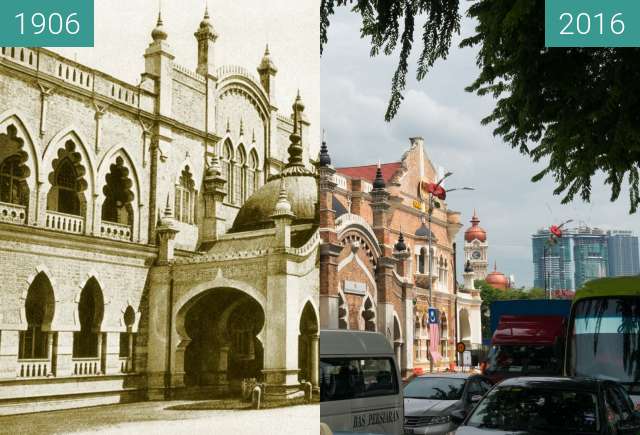
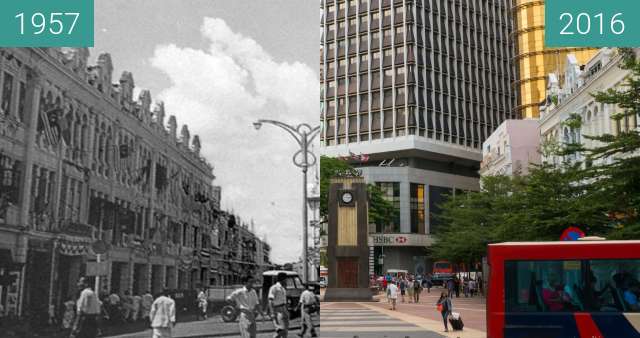
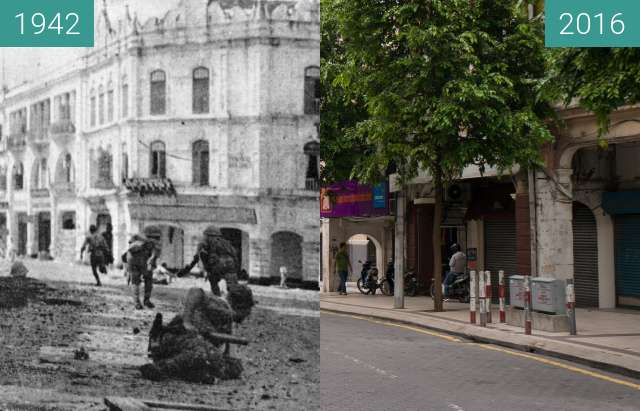
Construction for the Sultan Abdul Samad Building on the Merdeka Square with it's 40 meters high clock tower began in 1894 and finished already three years later. Like many other buildings of that period in Kuala Lumpur, it was designed by the British Architect A. C. Norman and his assistant R. A. J. Bidwell in an Indo-Saracenic or Neo-Mughal style.
It formerly housed the superior courts of the country: the Federal Court of Malaysia, the Court of Appeals and the High Court of Malaya. Today, it houses the Courts of Law and is a popular gathering point on New Year's Eve and national holidays.
La construction du bâtiment du sultan Abdul Samad sur la place Merdeka, avec sa tour de l’horloge haute de 40 mètres, a débuté en 1894 et s’est achevée trois ans plus tard. Comme beaucoup d'autres bâtiments de cette époque à Kuala Lumpur, il a été conçu par l'architecte britannique A. C. Norman et son assistant, R. A. J. Bidwell, dans un style indo-saracénique ou néo-moghol.
Il abritait autrefois les cours supérieures du pays: la Cour fédérale de Malaisie, la Cour d'appel et la Haute Cour de Malaisie. Aujourd'hui, il abrite les tribunaux et constitue un lieu de rassemblement populaire pour le réveillon du Nouvel An et les fêtes nationales.